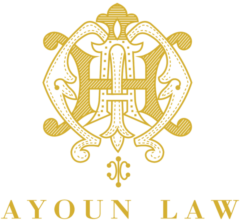Navigate the legal landscape in Ontario! Explore options from legal aid to pro bono services for informed decisions.

Selecting the Right Legal Aid: Ontario Legal Counselor Consultation
Understanding Legal Representation Options in Ontario
Choosing the right legal representation is crucial for navigating legal matters in Ontario. There are various options available, each tailored to different needs and situations. Below, you can explore key comparisons that will help you make an informed decision regarding your legal representation.
Lawyer vs Paralegal in Ontario
In Ontario, the primary distinction between a lawyer and a paralegal lies in their qualifications and the scope of their practice. Lawyers typically handle complex legal issues, including representation in court, while paralegals are licensed to assist in legal tasks such as document preparation and some court representation.
| Criteria | Lawyer | Paralegal |
|---|---|---|
| Education | Juris Doctor (JD) | Paralegal diploma or certificate |
| Licensing | Law Society of Ontario | Law Society of Ontario |
| Court Representation | Yes, in all matters | Limited to certain areas |
| Complexity of Issues | More complex legal matters | Typically less complex matters |
Family Lawyer vs Divorce Lawyer in Ontario
While both family lawyers and divorce lawyers deal with family law matters, the focus of their practices can differ. Family lawyers handle a broader range of issues related to family law, including adoption and child custody. Divorce lawyers specifically concentrate on divorce proceedings and related issues.
| Criteria | Family Lawyer | Divorce Lawyer |
|---|---|---|
| Scope of Practice | Wide range of family issues | Focused on divorce and separation |
| Child Custody | Yes | Often involved |
| Adoption | Yes | Not typically applicable |
Real Estate Lawyer vs Notary in Ontario
Real estate lawyers provide legal guidance in property transactions, ensuring compliance with laws and regulations. Notaries primarily witness signatures and can perform limited legal tasks associated with property deeds.
| Criteria | Real Estate Lawyer | Notary |
|---|---|---|
| Legal Advice | Yes | No |
| Property Transactions | Comprehensive | Limited |
| Dispute Resolution | Yes | No |
Immigration Consultant vs Immigration Lawyer in Ontario
Immigration consultants assist with immigration processes but cannot provide legal representation. Immigration lawyers can offer comprehensive legal support, including court representation if necessary.
| Criteria | Immigration Consultant | Immigration Lawyer |
|---|---|---|
| Legal Representation | No | Yes |
| Immigration Applications | Yes | Yes |
| Complexity of Cases | Basic to moderate | All complexities |
Big Law Firm vs Small Law Firm in Ontario
Big law firms typically offer a wider range of services and resources, while small law firms often provide personalized service with a stronger focus on individual client needs.
| Criteria | Big Law Firm | Small Law Firm |
|---|---|---|
| Resources | Extensive | Limited |
| Client Interaction | Less personalized | More personalized |
| Specialization | Diverse areas | Specific niches |
Boutique Law Firm vs Large Law Firm in Ontario
Boutique law firms specialize in specific areas of law, offering expertise and personalized service, while large firms provide a broad range of legal services across multiple areas.
| Criteria | Boutique Law Firm | Large Law Firm |
|---|---|---|
| Specialization | Focused expertise | General legal services |
| Client Attention | High level | May vary |
| Cost Structure | Competitive | Typically higher |
Contingency Fee vs Hourly Rate Lawyer in Ontario
Contingency fee arrangements allow you to pay a lawyer only if you win your case, while hourly rate lawyers charge for their time regardless of the outcome.
| Criteria | Contingency Fee | Hourly Rate |
|---|---|---|
| Payment | Only upon success | Paid per hour of service |
| Risk | Lower for clients | Higher for clients |
Flat Fee vs Hourly Lawyer in Ontario
Flat fee arrangements provide a set cost for specific legal services, while hourly lawyers charge based on the actual time spent on your case.
| Criteria | Flat Fee | Hourly Rate |
|---|---|---|
| Payment Structure | Fixed cost | Variable cost |
| Predictability | High | Low |
Mediation vs Court Divorce in Ontario
Mediation involves a neutral third party helping parties agree to terms outside of court, while court divorce is a legal process that requires court intervention.
| Criteria | Mediation | Court Divorce |
|---|---|---|
| Process | Collaborative | Adversarial |
| Cost | Generally lower | Often higher |
| Control | Greater client control | Court decides |
Litigation vs Arbitration in Ontario
Litigation involves resolving disputes through court proceedings, while arbitration is a private process where an arbitrator decides the issue.
| Criteria | Litigation | Arbitration |
|---|---|---|
| Formality | Court-based | Less formal |
| Privacy | Public | Private |
| Resolution Time | Often longer | Typically quicker |
Legal Aid vs Private Lawyer in Ontario
Legal aid services provide assistance to those who cannot afford a lawyer, while private lawyers charge for their services based on market rates.
| Criteria | Legal Aid | Private Lawyer |
|---|---|---|
| Cost | No charge or low fee | Market rate |
| Eligibility | Based on income | Open to all |
| Range of Services | Limited | Comprehensive |
Pro Bono Lawyer vs Paid Lawyer in Ontario
Pro bono lawyers offer their services for free, typically in certain cases depending on their focus. Paid lawyers charge for their services based on the arrangement agreed upon.
| Criteria | Pro Bono Lawyer | Paid Lawyer |
|---|---|---|
| Cost | Free | Chargeable |
| Availability | Limited | Widely available |
| Scope | Often specific cases | All legal matters |
This comparative overview of legal representation options in Ontario will assist you in making informed decisions based on your specific legal needs. For further guidance on selecting an appropriate legal professional, visit our articles on ontario legal counselor selection and ontario legal representation options.




Comments (0)